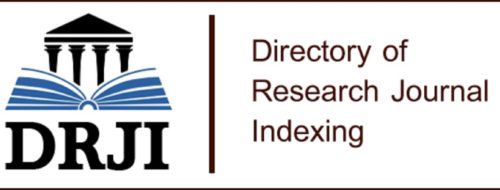Optimización de la integración de energías renovables en sistemas eléctricos, utilizando un algoritmo genético
DOI:
https://doi.org/10.56124/encriptar.v7i13.001Palabras clave:
Optimización energética, Algoritmo Genético, Sistemas de Energías RenovablesResumen
Este estudio presenta un modelo teórico que introduce un método híbrido para la integración efectiva de energías renovables en sistemas eléctricos, combinando la simulación de valores iniciales con la metaheurística del Algoritmo Genético. Se examinan las estrategias de optimización vigentes, destacando los desafíos y oportunidades asociados con la optimización de sistemas energéticos sostenibles. El objetivo primordial de esta propuesta es definir un modelo que maximice la incorporación de energías renovables y reduzca al mínimo la dependencia de combustibles fósiles en la generación de electricidad, promoviendo así la transición hacia una matriz energética más limpia, diversificada y eficiente. Se abordan las implicaciones de este enfoque para tal transición, enfatizando la necesidad de desarrollar modelos matemáticos capaces de simular y optimizar sistemas energéticos a gran escala, sustituyendo progresivamente las tecnologías basadas en combustibles fósiles por fuentes renovables. Esta estrategia ofrece perspectivas prometedoras para la planificación y operación de sistemas energéticos sostenibles, como se evidencia en los resultados obtenidos de validar el modelo con datos focalizados en la Ciudad de Salta, Argentina.
Descargas
Citas
Abbas F., Habib S., Feng D. y Yan Z. (2018). Optimizing generation capacities incorporating renewable energy with storage systems using genetic algorithms. Electronics, 7(7), 100.
Ahmad T. y Zhang D., 2021. Renewable energy integration/techno-economic feasibility analysis, cost/benefit impact on islanded and grid-connected operations: A case study. Renewable Energy, 180, 83-108.
CAMMESA – Potencia Instalada | Renovables (https://despachorenovables.cammesa.com/potencia-instalada/)
da Silva D. J., Belati E. A. y López-Lezama J. M. (2023). A mathematical programming approach for the optimal operation of storage systems, photovoltaic and wind power generation. Energies, 16(3), 1269.
Gusain C., Tripathi M. M. y Nangia U. (2023). Study of meta-heuristic optimization methodologies for design of hybrid renewable energy systems. Thermal Science and Engineering Progress, 39, 101711.
Jesse B. J., Heinrichs H. U. y Kuckshinrichs W. (2019). Adapting the theory of resilience to energy systems: a review and outlook. Energy, Sustainability and Society, 9, 1-19.
Liu X., Liu Y., Liu J., Xiang Y. y Yuan X. (2019). Optimal planning of AC-DC hybrid transmission and distributed energy resource system: Review and prospects. CSEE Journal of Power and Energy Systems, 5(3), 409-422.
Mechleri E. y Arellano-Garcia H. (2018). A mathematical programming approach to optimal design of smart distributed energy systems. In Computer Aided Chemical Engineering Vol. 44, pp. 2521-2526.
Ministerio de Energía y Minería. (2021) (https://www.minem.gob.ar/www/833/25871/precios-adjudicados-del-programa-renovar)
Rabe M., Bilan Y., Widera K. y Vasa, L. (2022). Application of the linear programming method in the construction of a mathematical model of optimization distributed energy. Energies, 15(5), 1872.
Sinsel S. R., Riemke R. L. y Hoffmann V. H. (2020) Challenges and solution technologies for the integration of variable renewable energy sources—a review. Renewable Energy, 145, 2271-2285.
Ssekulima E. B., Anwar M. B., Al Hinai A. y El Moursi M. S. (2016). Wind speed and solar irradiance forecasting techniques for enhanced renewable energy integration with the grid: a review. IET Renewable Power Generation, 10(7), 885-989.
Worighi I., Maach A., Hafid A., Hegazy O. y Van Mierlo, J. (2019). Integrating renewable energy in smart grid system: Architecture, virtualization and analysis. Sustainable Energy, Grids and Networks, 18, 100226.
Zhang J., Zhao L., Deng S., Xu W., y Zhang Y. (2017). A critical review of the models used to estimate solar radiation. In Renewable and Sustainable Energy Reviews, vol 70 pp. 314 –329.
Publicado
Cómo citar
Número
Sección
Licencia
Derechos de autor 2024 Revista Científica de Informática ENCRIPTAR - ISSN: 2737-6389.

Esta obra está bajo una licencia internacional Creative Commons Atribución-NoComercial-CompartirIgual 4.0.















